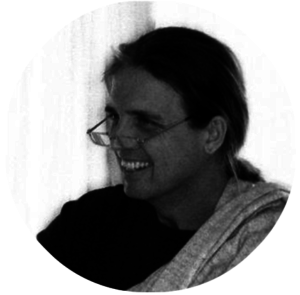*** Places are still available for this retreat ***
This retreat is held under the auspices of Tibetan Buddhist master Dzongsar Khyentse Rinpoche with Jakob Leschly as his resident instructor.
About the course
The practice of Buddhist meditation allows us to uncover and experience our natural heritage of wisdom though cultivating insight or vipashyana.
It is to establish a peaceful space of presence and mindfulness, allowing us to awaken a calmer and wider appreciation of our reality.
A retreat is an invaluable moment of clarifying and reaffirming our commitment to the vision and path of meditation. Jakob Leschly will lead the 5-day retreat, offering general instruction and individual interviews.
Please see the Vipashyana Retreat Schedule and Info document which outlines the proposed schedule to be followed and relates further information about how the retreat will be run and a more in-depth overview.
Newcomers needn’t feel apprehensive; the retreat is suitable both to those new to meditation through to the more seasoned practitioners.
Retreat start and finish time
The course will start at 5 pm on Wednesday 27 November for registration with dinner from 6 pm. Come earlier if you can to give yourself time to have a look around and get settled in. The course will finish at around 11 am on Monday 2 December.
Accommodation
There are a mixture of camping sites, single and shared rooms (2 single beds to a room) available.
Karma yoga
Each participant will be given a small daily job to be responsible for in helping out with the running of the retreat. Also, a dishes roster will be in place.
What to bring
- toiletries, a torch, walking shoes, sunscreen, hat & wet weather gear
- hay fever remedies and other personal medications, if required
- meditation shawl or small blanket (recommended)
- extra cushions for how you feel comfortable sitting if you require them (there are cushions and chairs available).
- two sheets or a sleeping bag and one sheet. One blanket and a light duvet plus two pillows and two pillowcases are provided – if you have special requirements, please bring your own.
- towel/s
The weather can be unpredictable in November. It could be very hot or cool, and possibly wet so best to check the forecast and prepare accordingly.
Retreat Cost
Single: Member = $545, Non-member = $595
Share (2 single beds in 1 room): Member $520, Non-member $550
Camping: Member $480, Non-member $495
This cost includes food, accommodation and also covers teachers expenses.
Registration
To register and secure your room preference see registration form.
“We can actually declare that, as non-theistic Buddhists, we can free the whole world from pain. That’s the greatest news. And we are doing it properly, rather than worshipping somebody or going into a trance. We are doing it methodically, scientifically, psychologically. Starting with ourselves, we are expanding that news to others in turn. It is very definite and ordinary – and at the same time, it is quite remarkable.” – Chögyam Trungpa Rinpoche
About Jakob Leschly
Jakob became a student of Buddhism in 1974. He travelled to India in 1975, where he became a student of Dilgo Khyentse Rinpoche, as well as Tulku Pema Wangyal. He met Dzongsar Jamyang Khyentse in 1977 and became his student as well.
In the early 1980s, Jakob did a three-year retreat in France, after which he worked for Association de Centre d’Etudes de Chanteloube. He has worked on translations from Tibetan, including Shabkar and Wondrous Dance of Illusion, and has also served as an oral interpreter for several lamas. In the 1990s he lived in Bir, translating both Madhyamaka and sadhana material for Siddhartha’s Intent (SI). In the late 1990s, he began leading study and practice programs for SI Western Door.
Working toward clear and inclusive presentations of Buddhism for modern lay people and non-Buddhists, Jakob wrote and edited many of the early summaries and blurbs presenting Rinpoche’s teachings and programs. In the 2000s he earned a BA in Tibetology at the University of Copenhagen, exploring the commonalities and differences between Buddhism and western humanities and sciences. Since 2008 he has lived in Australia, where he presently directs study and practice programs for SI Australia. He is also a member of the KF Ashoka Translation Grants Subcommittee.

